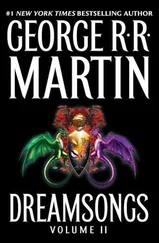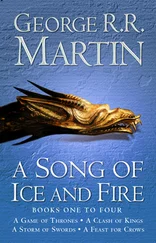So she was angry with herself for having shown herself, at least in this, to be inferior to him. That was ridiculous, he thought. She might be a master sorcerer and he only a novice, yes, but he was a man, nevertheless, and she a woman, and men tended to be physically stronger than women, on the average, and probably that was true among otters too. If she had displayed weakness during their wild swim, it was a forgivable weakness, which only exacerbated his love for her. He murmured words of comfort to her, and was so bold to put his arm about her shoulders, and then, suddenly, astonishingly, everything changed, she pressed her bare body against him, she clung to him, she sought his lips with a hunger that was almost frightening, she opened her legs to him, she opened everything to him, she drew him down into her body and her soul.
Afterward, when it seemed appropriate to return to the city, it was necessary to call on her resources of sorcery once more. They both were naked, and many miles downstream from where they needed to be. She seemed not to want to risk returning to the otter form again, but there were other spells of transportation at her command, and she used one that brought them instantly back to West Triggoin, where their clothing and even the rope with which Gannin Thidrich had bound himself were lying in damp heaps near the place where he had thrown himself into the river. They dressed in silence and in silence they made their way, walking several feet apart, back to her flat.
He had no idea what would happen now. Already she appeared to be retreating behind that wall of untouchability that had surrounded her since the beginning. What had taken place between them on the riverbank was irreversible, but it would not transform their strange relationship unless she permitted it to, Gannin Thidrich knew, and he wondered whether she would. He did not intend to make any new aggressive moves without some sort of guidance from her.
And indeed it appeared that she intended to pretend that nothing had occurred at all, neither his absurd suicide attempt nor her foiling of it by following him to the river and turning them into otters nor the frenzied, frenetic, almost insane coupling that had been the unexpected climax of their long swim. All was back to normal between them as soon as they were at the flat: she was the master, he was the drudge, they slept in their separate rooms, and when during the following day’s lessons he bungled a spell, as even now he still sometimes did, she berated him in the usual cruel, cutting way that was the verbal equivalent of transforming him once again into a sandroach. What, then, was he left with? The taste of her on his lips, the sound of her passionate outcries in his ears, the feel of the firm ripe swells of her breasts against the palms of his hands?
On occasions over the next few days, though, he caught sight of her studying him surreptitiously out of the corner of her eye, and he was the recipient of a few not so surreptitious smiles that struck him as having genuine warmth in them, and when he ventured a smile of his own in her direction it was met with another smile instead of a scowl. But he hesitated to try any sort of follow-up maneuver. Matters still struck him as too precariously balanced between them.
Then, a week later, during their morning lesson, she said briskly, “Take down these words: Psakerba enphnoun orgogorgoniotrian phorbai. Do you recognize them?”
“No,” said Gannin Thidrich, baffled.
“They are the opening incantation of the spell known as the Sublime Arcanum,” said Halabant.
A thrill rocketed down his spine. The Sublime Arcanum at last! So she had decided to trust him with the master spell, finally, the great opener of so many gates! She no longer thought of him as a fool who could not be permitted knowledge of it.
It was a good sign, he thought. Something was changing.
Perhaps she was still trying to pretend even now that none of it had ever happened, the event by the riverbank. But it had, it had, and it was having its effect on her, however hard she might be battling against it, and he knew now that he would go on searching, forever if necessary, for the key that would unlock her a second time.
Wendy N. Wagner’s first novel, Her Dark Depths , is forthcoming from the small press Virtual Tales. Her short fiction has appeared in the anthology 2012 A.D. and in the online magazine Crossed Genres . In addition to her fiction writing, she has conducted interviews for horror-web.com. She shares her Portland, Oregon, home with one painting husband, one brilliant daughter, and no zombies. Her website is winniewoohoo.com.
When most of us think of dwarves, we think of Snow White’s seven friends, adorable and friendly. Or perhaps the noble lords of the underground that Tolkien portrayed in The Lord of the Rings . But the ancient Norse myths painted an image of a darker, subterranean race, a race firmly linked with stone and greed and evil. Of all the origin-tales, the dwarf in our next story is closest to these ancient dwarves — and yet nothing like them at all.
Rugel is the last of his kind, a dwarf alone in the world and lost from his moorings. He’s a thief and a trickster, a murderer and an unwilling wizard. Now his wanderings have brought him back to his childhood home, where he must confront himself and the shambles of his life.
Wagner says that this story is about a man who spends his whole life running away from incredible pain and loss, a man who is afraid to make a life for himself. “But luckily,” she says, “it’s also about the transformative power of love and the ways it can give even the most desperate person courage and power.”
Now that’s magic.
The Secret of Calling Rabbits
Wendy N. Wagner
The breeze shifted as Rugel ran, and he caught a scent upon it, sweet and strong, a scent that reached into the depths of his memories and twanged them. He lost his footing at the power of it, and he threw himself into a bush beside the path, gasping. He preferred running to hiding, but he couldn’t run with that scent thickening the air.
His pursuer shouted again. “Wait! Show me how you did that!” Her voice distracted him from the smell of the past; it focused his mind on the pressing problem of survival. He should have never come back to this place.
She came closer, and Rugel peeked out at the little girl on the path. Her knees, bared by her too-short shift, were scabbed and grass-stained as she spun a slow searching circle. Rugel crouched further down inside the currant bush. He was a dwarf — though “dwarf” was a generous measure of someone his size — and he had a gift for going unseen; perhaps the girl would lose sight of him.
“Please!” the girl cried. She stopped in front of the bush, picking out his gnarled face from the tangle of undergrowth. “I saw you call the rabbit.”
Rugel cursed to himself. He should never have summoned the hare, or, having called it, he ought to have killed it. Now he’d go hungry, and this Big creature had seen him. But it was a child Big, he thought with a measure of hope, and children were easily scared.
“Go away!” he growled.
She stood solid, brown eyes fierce.
He tried again. “I’ll kill ya!”
Her lip trembled at his words, but not much. She had seen him pet the hare. Now she could not imagine him performing violence. He had killed before, both animals and humans — although never children, only grown men bent on harm — but she did not know that. She had only seen a very small man, tiny as herself, running his fingertips over the calm back of a brown rabbit.
He straightened himself up out of the currant bush. “You’ve got to have dwarf magic to call animals, girl,” he called. “You don’t have it.”
Читать дальше












